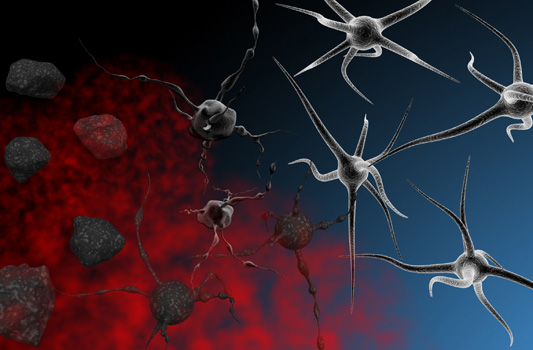

In Response To Natural Catastrophes: Self Examination & Decision Time
A natural catastrophe always raises the uncomfortable question about human involvement. Some will say that such horrible events have nothing to do with human behavior, while others will link them to climate change and our effect on the planet. In a recent Project Syndicate article titled “Hurricane Sandy and Climate Change,” Professors J. Marshall Shepherd (Director of the Atmospheric Sciences program) and John Knox (receiver of the National Weather Association’s highest research award) of Georgia University, write the following: There is growing evidence of links between climate change and sea-level rise, heat waves, droughts, and rainfall intensity, and, although scientific research on hurricanes and tornadoes is not as conclusive, that may be changing. Indeed, recent reports by the United Nations’ Intergovernmental Panel on Climate Change (IPCC) and other scientific literature suggest that the intensity of hurricanes will increase as a result of warmer waters. And our atmosphere and oceans are, indeed, warming…” Thinking we might be contributors to the devastation brought upon us by Sandy is indeed startling, and as the professors say, “the scientific research needed to prove or disprove such a connection must still be conducted.” But while scientists are hesitant to give us a definite answer, Sandy serves as a grim reminder that regardless of how well we understand it, we are all little pieces within the bigger puzzle of nature. And we all depend on nature. In modern times, we have grown accustomed to seeing ourselves as a separate and superior part of nature. We feel we are entitled to use, consume and manipulate natural systems to satisfy our needs and serve our desires. Those...
Education About Interconnectedness Is A Matter Of Human Survival
Unfortunately, too few people have understood the evidence, or have grasped the true scope and significance of the environment. The systemic explanation of the causes of environmental deterioration and disaster is radical in a fundamental sense, i.e. reaching for root causes. People commonly perceive their ‘environment’ as the total of numerous separate interrelationships that have no apparent connections. In fact, these interactive relationships are ultimately, even though remotely, connected. Although humans consciously interact with the total environment only in relation to particular aspects or elements, survival as a species may depend upon their understanding that those interactions occur within the infinitely greater and more complex systemic reality. Science is progressively enlarging our awareness of this greater environmental context. Its ubiquitous complexity explains the rationale for the aphorism that ‘you can never do just one thing.'” Today’s Social Behavior Is At Odds With An Interconnected Approach The modern view of progress has been distorted psychologically in a way that has obscured its cumulative adverse impacts on humanity. Human behavior, while driven by forces both internal (cerebral) and external (environmental), is moved by perception. How people interpret what they perceive is largely determined by their own experience within their culture, and is a legacy of generations past, transmitting interpretations of reality which may persist as after-images even though the reality has in fact changed. The man-nature dichotomy, the conquest of nature ideology, material expansion, and perpetual growth have long been dominant themes of modernity. They continue to be a mantra of social behavior, albeit increasingly at odds with science-based holistic systemic perceptions of reality.” Few People Understand Interconnectedness Moreover the ‘system’...
Want To Re-Wind The Aging Clock? Change Your Environment!
The Future Of Anti-Aging Therapies Dr. Thomas Rando, principle investigator for the Rando Laboratory at Stanford University’s School of Medicine is paving the path to the fountain of youth. Research emerging from his lab changed the cutting-edge focus of anti-aging strategies from how to reverse aging to how to reset the aging clock. Dr. Rando’s team demonstrates that by changing the environment of aging cells that scientists can push a “reset button” effectively restoring the characteristics of youth. As a result, organs and tissues comprised of these cells become “young” again even though they are chronologically “elderly.” A Happy Epigenome Acts Young And Healthy Dr. Rando explains in the January 2012 issue of Cell that the reset button is pushed by manipulating epigenetic factors affecting the aging cellular environment. Every cell in the human body contains 100% of the genetic material necessary to build an entire person. Regulation of which genes get expressed (turned on) is governed by cellular material known as the epigenome. The epigenome is affected by environmental factors including diet and stress. Positive environmental factors ensure a nurturing epigenome whereas negative factors imprint the epigenome destructively. Hallmarks of an “unhappy” epigenome include aging and disease. The Miracle of Conception By manipulating the epigenome, scientists are able to reset the aging clock on cells in a process duplicating the conditions of human conception. When the genetic material of a man and woman meet during fertilization, the resulting genetic material (zygote) is reset to ground zero even though the contributing material (mom and dad) is decades old. In a process scientists don’t yet understand, the union of the...
What Is Systems Thinking? – Peter Senge Explains Systems Thinking Approach And Principles
http://youtu.be/HOPfVVMCwYg What Is Systems Thinking? Whenever I’m trying to help people understand what this word ‘system’ means, I usually start by asking: ‘Are you a part of a family?’ Everybody is a part of a family. ‘Have you ever seen in a family, people producing consequences in the family, how people act, how people feel, that aren’t what anybody intends?’ Yes. ‘How does that happen?’ Well… then people tell their stories and think about it. But that then grounds people in not the jargon of ‘system’ or ‘systems thinking’ but the reality – that we live in webs of interdependence.” What Is The Fundamental Rationale Of Systems Thinking? [The fundamental rationale of systems thinking] is to understand how it is that the problems that we all deal with, which are the most vexing, difficult and intransigent, come about, and to give us some perspective on those problems [in order to] give us some leverage and insight as to what we might do differently.” 3 Characteristics Of A Systems Thinking Approach A very deep and persistent commitment to ‘real learning.’ I have to be prepared to be wrong. If it was pretty obvious what we ought to be doing, then we’d be already doing it. So I’m part of the problem, my own way of seeing things, my own sense of where there’s leverage, is probably part of the problem. This is the domain we’ve always called ‘mental models.’ If I’m not prepared to challenge my own mental models, then the likelihood of finding non-obvious areas of leverage are very low. The need to triangulate. You need to get different...
